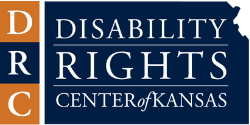
There are signs on almost every street corner; information is sent to you in the mail, and you see commercials advertising: “Rent to Own”. Many of these companies are SCAMS trying to take advantage of you.
How do these scams work?
Tenants wanting to become homebuyers can be hit hard by scams. Scammers will advertise rent-to-own agreements that are deceptive. These agreements typically include big upfront fees or nonrefundable fees. Additionally, the tenant is financially responsible for costly repairs and updates. If the agreement is later terminated for any reason, the tenant has no built-up equity and is not entitled to reimbursement for any improvements or repairs made to the property.
Before contacting a “Rent to Own” company, keep the following in mind.
|
|
-
- If you’re looking to buy or rent a home, never pay money upfront before signing a lease or contract. Work with a real estate or leasing agent you trust.
-
- In rent-to-own agreements, always confirm the true owner of the home. You can check with your county government, usually online, to determine who owns the home.
-
- Know every detail of your rent-to-own contract. Many rent-to-own contracts allow for stiff penalties if the buyer is late or misses a payment.
-
- Get the home inspected. A home inspector can help shed light on any potential physical problems and health hazards in the home.
-
- Compare the purchase price of similar properties. This may prevent you from overpaying the true value of the home.
-
- Don’t believe anyone who tells you that you can get a house for free or with no down payment.
|
|
|
|
|
Additional tips to protect your home:
|
|
-
- Speak with a U.S. Department of Housing and Urban Development (HUD) certified housing counselor. Free counseling is available (or at a low cost based on your income). Ask for a face-to-face interview rather than by telephone. To locate a housing counselor near you, call (800) 569-4287 or go to: www.hud.gov/offices/hsg/sfh/hcc/hcs.cfm
-
- Make sure you have money to pay your real estate taxes and insurance on your home every year. You are responsible for both expenses and could lose your home if you do not pay them. This is the biggest cause of foreclosures!
-
- Work with a reputable lender. Check their listings with the Better Business Bureau at www.bbb.org
-
- Shop around. Scammers will lie and falsely claim they are the only lender you should speak with. Ignore the scammers and contact at least 3 reputable lenders instead.
-
- Attend the closing personally and make sure any proceeds are given to you and not someone else.
-
- If you do not understand why you are signing papers, talk with an attorney, trusted friend, or family member. Contact the DACVU if you think you are being scammed.
|
|
|
|
Already been scammed? Here are steps you can take:
|
|
-
- You can file a complaint with the HUD Office of Inspector General to request an investigation: www.hudoig.gov/report-fraud
-
- You can make a report with the Federal Bureau of Investigations (FBI) by phone at (800) 225-5324 or online at www.tips.fbi.gov
-
- You can file a complaint with the Kansas Attorney General to request an investigation at www.ag.ks.gov/complaint-center
-
- You can file a complaint with the Better Business Bureau at www.bbb.org
-
|
|
|
|
|
|
|
|
|
Our team understands how these scams affect people with disabilities and seniors. We are here to help you understand your rights and get the resources you need. Contact the Disability & Aging Crime Victims Unit (DACVU) to request assistance. The DACVU is a program of the Disability Rights Center of Kansas.
.png)






